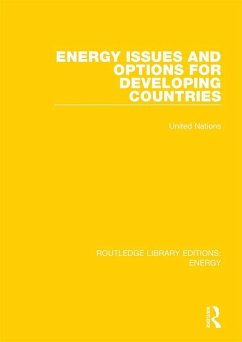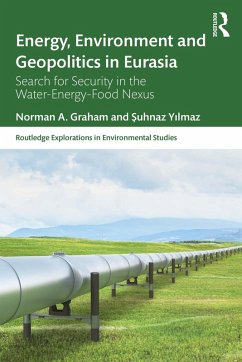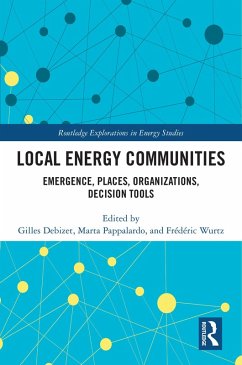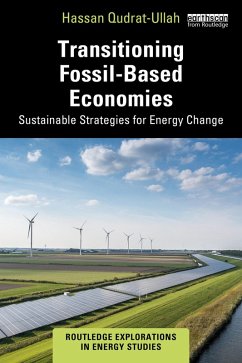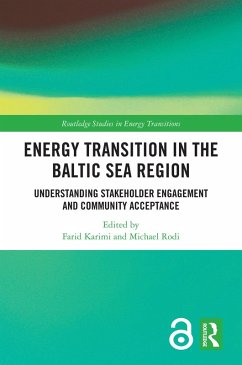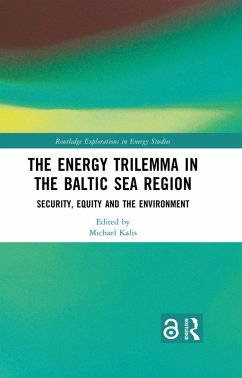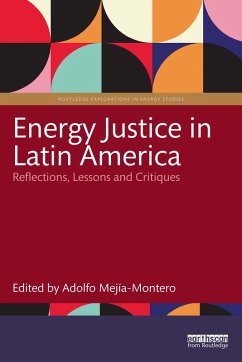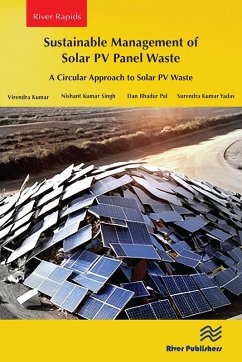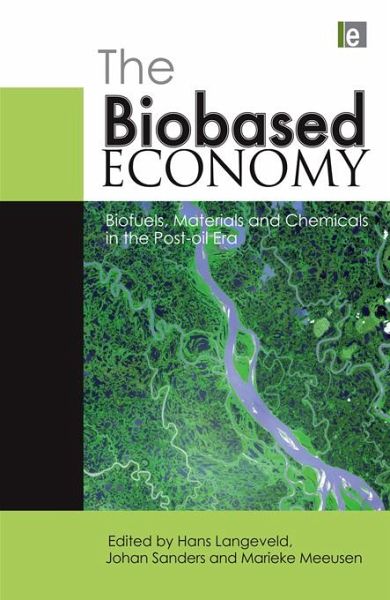
The Biobased Economy (eBook, ePUB)
Biofuels, Materials and Chemicals in the Post-oil Era
Redaktion: Langeveld, Hans; Meeusen, Marieke; Sanders, Johan
Versandkostenfrei!
Sofort per Download lieferbar
49,95 €
inkl. MwSt.
Weitere Ausgaben:

PAYBACK Punkte
25 °P sammeln!
The impending threats of catastrophic climate change and peak oil are driving our society towards increased use of biomass for energy, chemical compounds and other materials - the beginnings of a biobased economy. As alternative development models for the biobased economy emerge, we need to determine potential applications, their perspectives and possible impacts as well as policies that can steer technological and market development in such a way that our objectives are met. Currently, it is still far from clear what will be the most sustainable routes to follow, which technologies should be ...
The impending threats of catastrophic climate change and peak oil are driving our society towards increased use of biomass for energy, chemical compounds and other materials - the beginnings of a biobased economy. As alternative development models for the biobased economy emerge, we need to determine potential applications, their perspectives and possible impacts as well as policies that can steer technological and market development in such a way that our objectives are met. Currently, it is still far from clear what will be the most sustainable routes to follow, which technologies should be included, and how their development will affect, and be affected by, research, public opinion and policy and market forces.
This groundbreaking work, edited by a group of leading researchers originally from Wageningen Agricultural University in the Netherlands, sets out to unpick the complex systems in play. It provides an illuminating framework for how policy and market players could and should drive the development of a biobased economy that is effective, sustainable, fair and cost efficient. Starting with a state-of-the-art overview of major biobased technologies, including biorefinery and technologies for the production of biofuels, biogas, biomass feedstocks for chemistry and bioplastics, it discusses how different actor groups interact through policy and markets. Information from case studies is used to demonstrate how the potential of the biobased economy in different parts of the world, such as North America, Europe, and emerging economies like China and Brazil can be realised using research, debate, policy and commercial development. The result is an essential resource for all those working in or concerned with biobased industries, their policy or research.
This groundbreaking work, edited by a group of leading researchers originally from Wageningen Agricultural University in the Netherlands, sets out to unpick the complex systems in play. It provides an illuminating framework for how policy and market players could and should drive the development of a biobased economy that is effective, sustainable, fair and cost efficient. Starting with a state-of-the-art overview of major biobased technologies, including biorefinery and technologies for the production of biofuels, biogas, biomass feedstocks for chemistry and bioplastics, it discusses how different actor groups interact through policy and markets. Information from case studies is used to demonstrate how the potential of the biobased economy in different parts of the world, such as North America, Europe, and emerging economies like China and Brazil can be realised using research, debate, policy and commercial development. The result is an essential resource for all those working in or concerned with biobased industries, their policy or research.
Dieser Download kann aus rechtlichen Gründen nur mit Rechnungsadresse in A, B, BG, CY, CZ, D, DK, EW, E, FIN, F, GR, HR, H, IRL, I, LT, L, LR, M, NL, PL, P, R, S, SLO, SK ausgeliefert werden.




